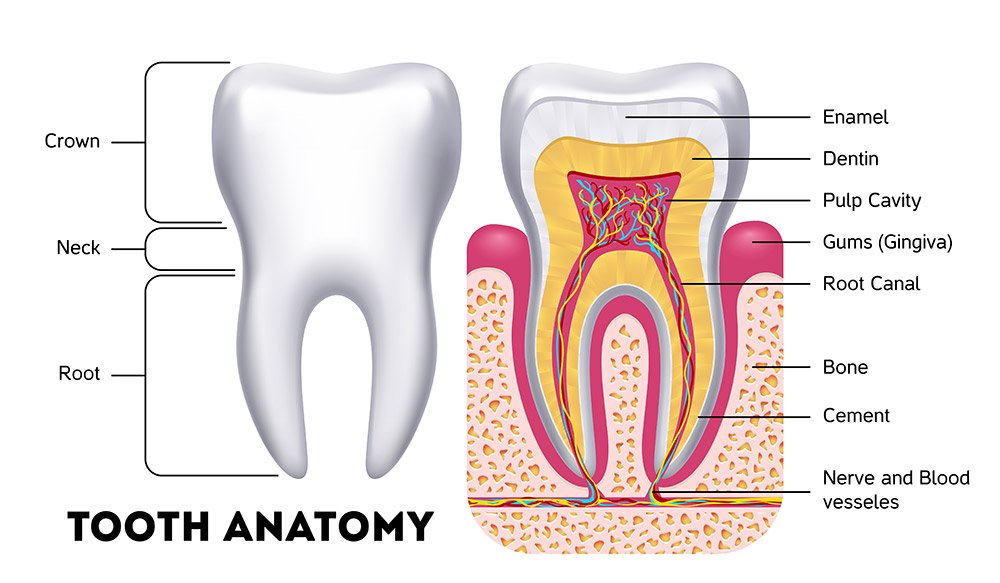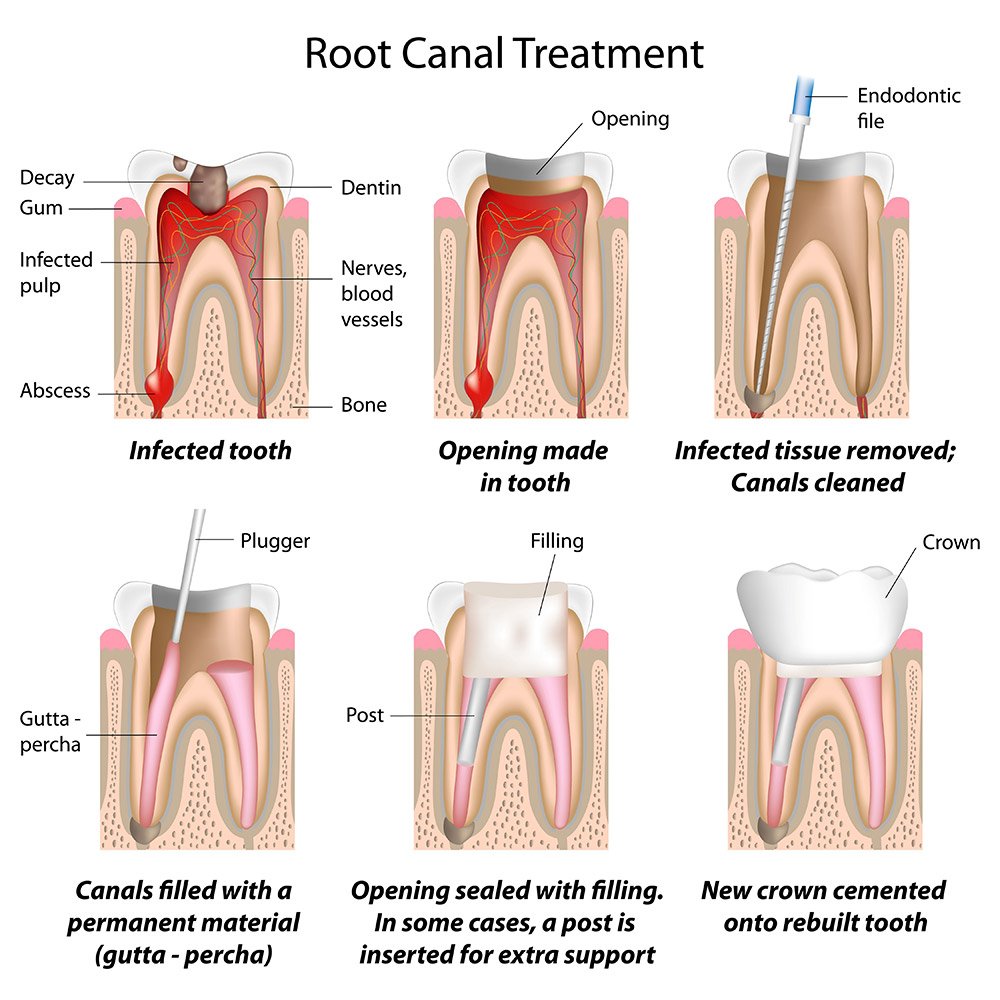
Endodontics Root Canal
“Dentistry is not expensive, neglect is.”
Plan Your Visit Now
Begin the Change
Root Canal
Endodontic treatment, or a root canal, is necessary when the nerve (pulp) becomes inflamed or infected. The inflammation or infection could be the result of many causes such as; deep decay, poor fitting dental crowns, failing metal amalgam filling, cracked or chipped teeth. In addition, trauma to a tooth may cause damage to the nerve despite the tooth having no visible decay, chips or cracks. If pulp inflammation or infection is left untreated, it can cause severe pain and tooth loss. Root canal treatment is the last resort before a tooth is no longer ‘savable’. Pulling a tooth to avoid having a root canal is not recommended unless replace of the tooth is planned. Leaving missing teeth will cause direct problems to adjacent teeth and bite.
Services:
- Pulp vitality test (during consultation)
- X-ray evaluation
- Root canal
- Re-treatment of root canal

Many times dentists will recommend filling a cavity, replacing a crown or addressing a crack in a tooth in the effort to avoid future problems-such as pain, infection but sometimes the damage to the tooth or the decay present is underestimated and a root canal can’t be avoided. Our practice always follows the most conservative approach in this situation. Consultation and testing of the tooth with our endodontist is how we can rule out the need for the procedure or not. Our in-house specialist in root canal treatment and oral microsurgery provides the most up-to-date, technologically advanced care with a compassionate and gentle touch. Dr. Mansouri uses state-of-the-art technology such as operating microscopes, digital imaging, ultrasonic instrumentation and fiber optics, to treat our patients at the highest standard of care and comfortably.

What Is A Root Canal Procedure?
Teeth are strong and are made up of layers. The top layer is made up of a strong outer layer called enamel. The next layer is the dentin, and within the dentin lies the pulp cavity and the root canal. The pulp cavity contains connective tissue, nerves, and even blood vessels. These layers protect the root and nerves of the tooth from the natural bacteria that live in the mouth.
If a tooth becomes decayed or injured, allowing bacteria to reach the root can cause infection to the pulp. A root canal is a procedure that removes the damaged nerve tissue and pulp from the tooth eliminating the infection. This procedure consists of creating a hole in the affected tooth to expose the infected area. Then, special tools called files are used to clean out all of the canals in the tooth.

Do I Need A Root Canal?
You will more than likely know that a root canal is imminent because of the pain that an infected tooth will cause. The pulp is an extremely sensitive part of the tooth, and an infection can cause unbearable pain. Some specific things to look for if you think you might have an infection include:
- Extreme pain when biting or chewing on foods
- Darkening around the gum area
- Small bumps form on your gums (similar to a pimple)
- Gums are tender to the touch and possibly swollen
- Hot and cold foods and beverages cause lingering sensitivity
- Teeth are chipped or cracked
If you are currently feeling any of these symptoms, we highly recommend seeing a dentist get it looked at. The longer you wait to address these issues, the more serious a root canal becomes.

How To Avoid A Root Canal?
According to the American Association of Endodontists, 15 million root canals are performed every year. There is a multitude of things that you can do to lessen the chances of having root canal treatment:
- Never miss brushing your teeth, and make sure to do it twice a day
- If you have cavities, get them filled immediately before a root canal is needed
- Don’t forget to floss after brushing your teeth
- Use mouthwash and toothpaste that contains fluoride
- Avoid hard foods and do not bite hard non-food items
- Avoid acidic and sugary foods as much as possible
The best thing you can do to catch an issue before it becomes severe is regular dental check-ups. Therefore, it is recommended to make a trip to the dentist’s office every six months for a routine cleaning and check-up.
Who Performs Root Canals?
An endodontist is a doctor that specializes in performing root canal procedures.
Endodontists have a specific license in the area of endodontics. These doctors specialize in studying and treating dental pulp, focusing on saving an individual’s teeth. In addition, many general dentists refer their patients to an endodontist to perform a root canal when treating infected teeth.
What Happens After A Root Canal?
The endodontist will remove the infected pulp during a root canal, clean and shape the canal, and then fill and seal it to close up the space. Afterward, you will return to your dentist, who has more than likely prescribed either a dental crown or another dental restoration to restore the tooth. This will ensure your teeth can perform at their full function.





Give Us A Call At 310.836.6161 Or Request An Appointment Online





